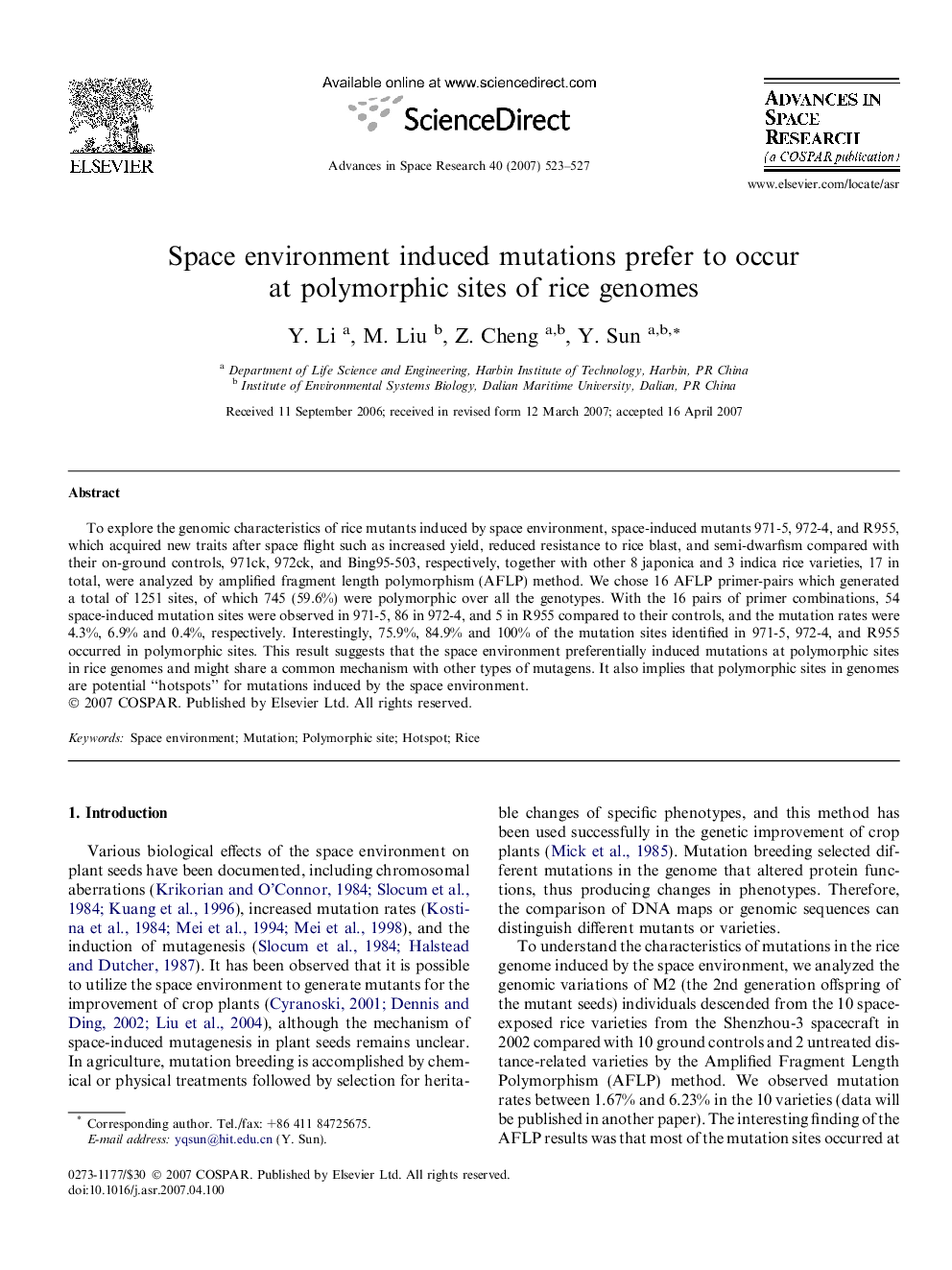| Article ID | Journal | Published Year | Pages | File Type |
|---|---|---|---|---|
| 1767127 | Advances in Space Research | 2007 | 5 Pages |
To explore the genomic characteristics of rice mutants induced by space environment, space-induced mutants 971-5, 972-4, and R955, which acquired new traits after space flight such as increased yield, reduced resistance to rice blast, and semi-dwarfism compared with their on-ground controls, 971ck, 972ck, and Bing95-503, respectively, together with other 8 japonica and 3 indica rice varieties, 17 in total, were analyzed by amplified fragment length polymorphism (AFLP) method. We chose 16 AFLP primer-pairs which generated a total of 1251 sites, of which 745 (59.6%) were polymorphic over all the genotypes. With the 16 pairs of primer combinations, 54 space-induced mutation sites were observed in 971-5, 86 in 972-4, and 5 in R955 compared to their controls, and the mutation rates were 4.3%, 6.9% and 0.4%, respectively. Interestingly, 75.9%, 84.9% and 100% of the mutation sites identified in 971-5, 972-4, and R955 occurred in polymorphic sites. This result suggests that the space environment preferentially induced mutations at polymorphic sites in rice genomes and might share a common mechanism with other types of mutagens. It also implies that polymorphic sites in genomes are potential “hotspots” for mutations induced by the space environment.
